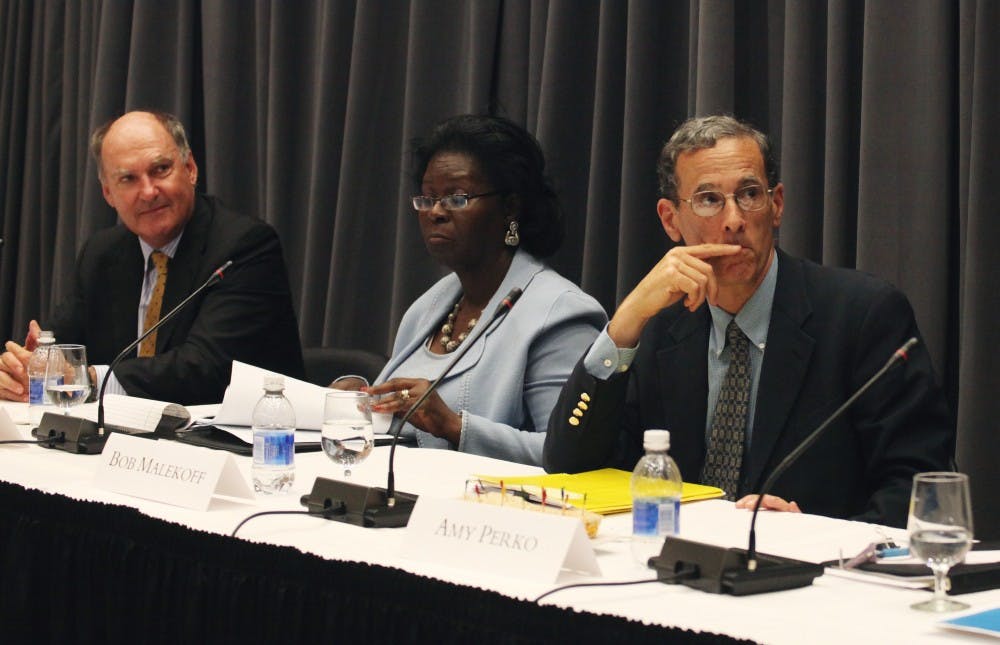Community members voiced one main concern at a panel meant to resolve issues with UNC’s relationship between academics and athletics: The system is broken.
A panel led by Hunter Rawlings, president of the Association of American Universities, met Friday with an audience of about 100 in Murray Hall.
“Today, we are really here to listen,” Rawlings said. “We’re not looking back — we’re looking forward.”
The panel, formed by Chancellor Holden Thorp in response to recent scandals, is led by Rawlings and includes four leaders in higher education. It is tasked with making recommendations on how to resolve the issues facing schools with Division I athletic programs like UNC.
And while panel members refrained from discussion, anyone who attended could speak.
UNC Athletic Director Bubba Cunningham spoke first and introduced the ideas he said should be considered in today’s Division I schools, including reworking NCAA governance structures and promoting athletes’ financial and academic success.
He said these concerns originated in 1984 when Nike sponsored Michael Jordan while he was a student.
“Companies realized the value of celebrity athletes,” Cunningham said. “We lost control of amateur in the AAU.”
Thorp said giving athletic control to university presidents and chancellors had the unintentional consequence of bringing governing boards closer to athletics — and some members are there solely for that reason, he said.



